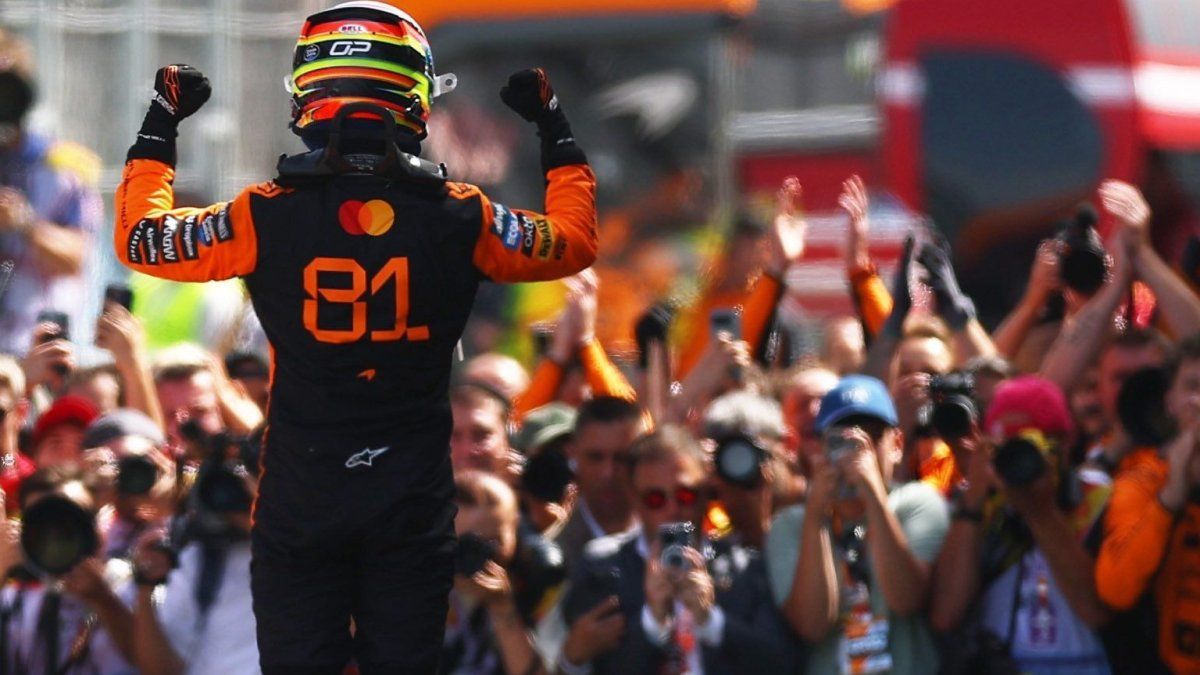There has been no functioning government in Northern Ireland for almost two years. Until now, one of the most important parties boycotted the cooperation – that should now change.
The bang came late. It was already late night in Belfast when Jeffrey Donaldson appeared in front of the television cameras. His Democratic Unionist Party (DUP) will return to the regional government of Northern Ireland, Donaldson said into the microphones.
The Protestant party, which advocates political union with Great Britain, has been boycotting the formation of a government in Belfast for almost exactly two years. The sensational step now fuels hope for more stability in the former civil war region – but numerous questions remain, and at the same time the loyalist camp in particular is threatened with a breaking point.
Northern Ireland, what was that like again?
Northern Ireland is part of the United Kingdom – this is what the unionist, mostly Protestant forces, whose main party is the DUP, maintain. The region has endured a long civil war – also known as “The Troubles”. This still has an impact today. The conflict ended in 1998 with the Good Friday Agreement.
The agreement stipulates that the largest parties of the two denominational camps must form a unity government. In the most recent general election in May 2022, Sinn Fein, a Catholic party that strives for reunification with Ireland, became the strongest force for the first time. The party is therefore entitled to the post of head of government, while the DUP would remain the deputy post – with equal rights. But the DUP has so far boycotted cooperation with Sinn Fein and made an end to all goods controls between Northern Ireland and Great Britain a condition for its participation in government.
Customs border after Brexit
The conservative central government in London agreed on these controls with the EU after Brexit. Otherwise a “hard border” would have been created between Northern Ireland and the EU member Ireland. Former British Prime Minister Tony Blair once described Brexit as the biggest immediate challenge to the peace process. The concern: checkpoints could become the target of new attacks.
The “Northern Ireland Protocol” therefore stipulates that the customs border between Great Britain and the EU runs in the Irish Sea. Northern Ireland is therefore de facto still part of the EU customs union. But the regulation also brought difficulties, for example when sending parcels, medicine and bringing pets from Great Britain to Northern Ireland. Finally, Brussels and London agreed on the so-called Windsor Agreement, which was intended to remedy the situation. But the DUP didn’t go far enough; they ultimately called for an end to all domestic controls. She fears that the controls will otherwise make reunification with Ireland more likely.
What did London promise the DUP?
The London central government has been trying to restart regional government in Northern Ireland for a while. It is still unclear what concessions she made. British Northern Ireland Minister Chris Heaton-Harris refused to give details. Rumor has it that it’s not just about billions of pounds in wages, but also about the fact that all internal British controls will actually be abolished.
“I can’t imagine how this would be possible without renegotiations with the EU,” said Katy Hayward from Queen’s University Belfast to the German Press Agency. A spokesman for the EU Commission welcomed the announced restoration of political institutions. However, we will only comment on the content once it becomes known.
The loyalist camp is in danger of breaking
The British government, Sinn Fein and almost all other parties in Northern Ireland welcomed the DUP commitment. An agreement now has momentum, said Hayward. At the same time, the political scientist warned of a break in the loyalist camp. A significant proportion of DUP voters were disappointed that the party had suddenly backed down, she said. These people now felt disillusioned and no longer represented. Radical voices could now become louder.
Donaldson speaks of threats
DUP leader Donaldson not only faced pressure from other parties and London to find an agreement. In return, he was threatened by more radical forces because he was willing to negotiate at all, as the PA news agency reported. His party, it was said, had called in the police.
BBC report on the announcement Report from the “Belfast Telegraph” Report from Sky News
Source: Stern
I have been working in the news industry for over 6 years, first as a reporter and now as an editor. I have covered politics extensively, and my work has appeared in major newspapers and online news outlets around the world. In addition to my writing, I also contribute regularly to 24 Hours World.




